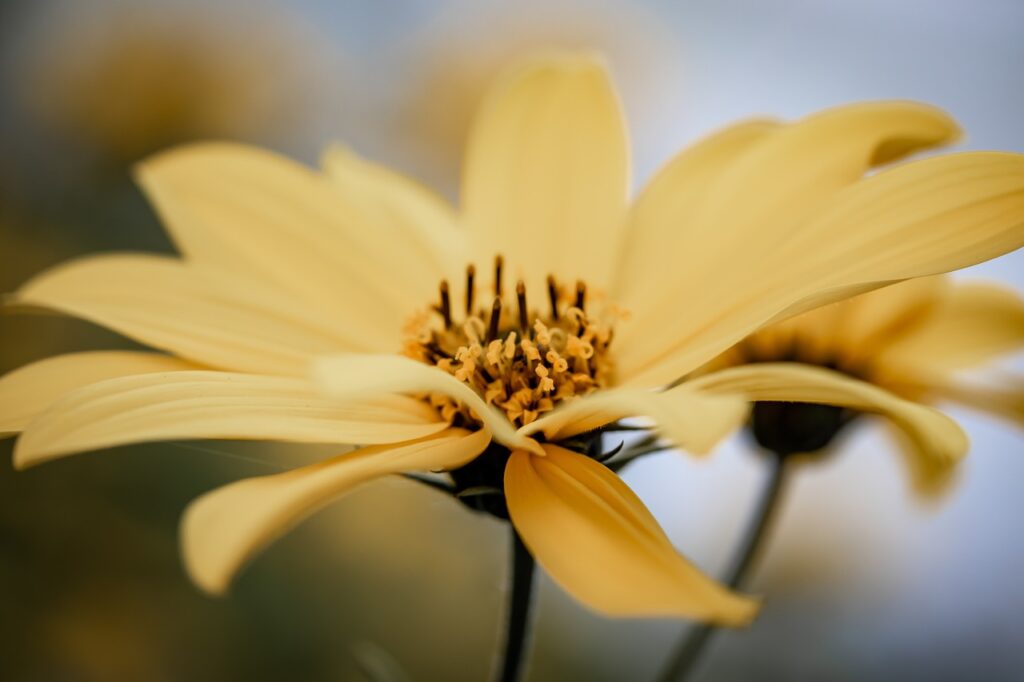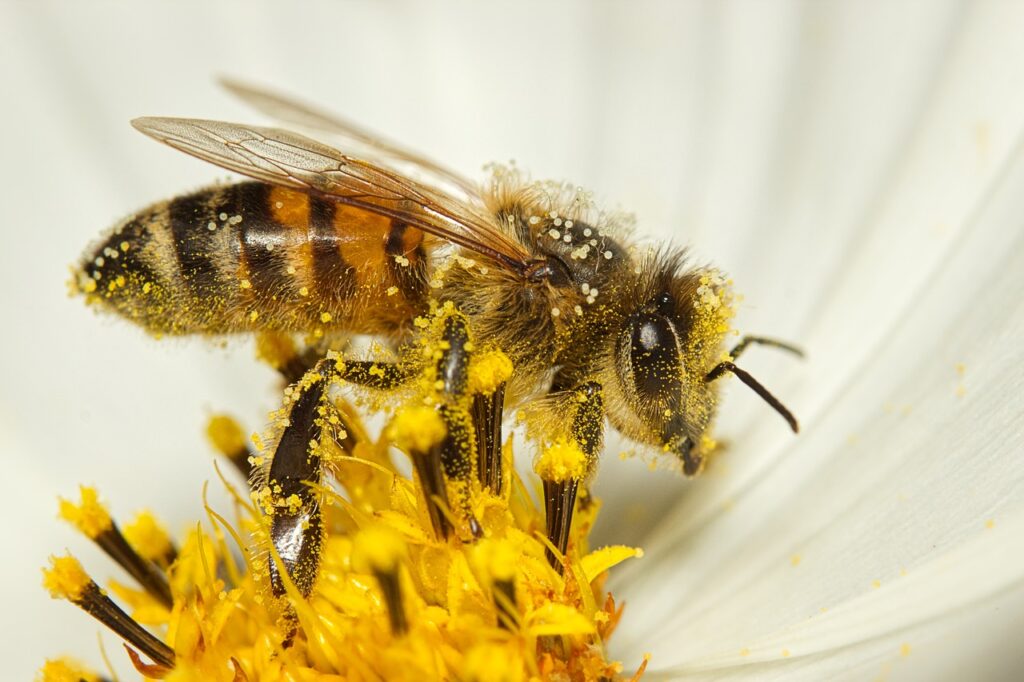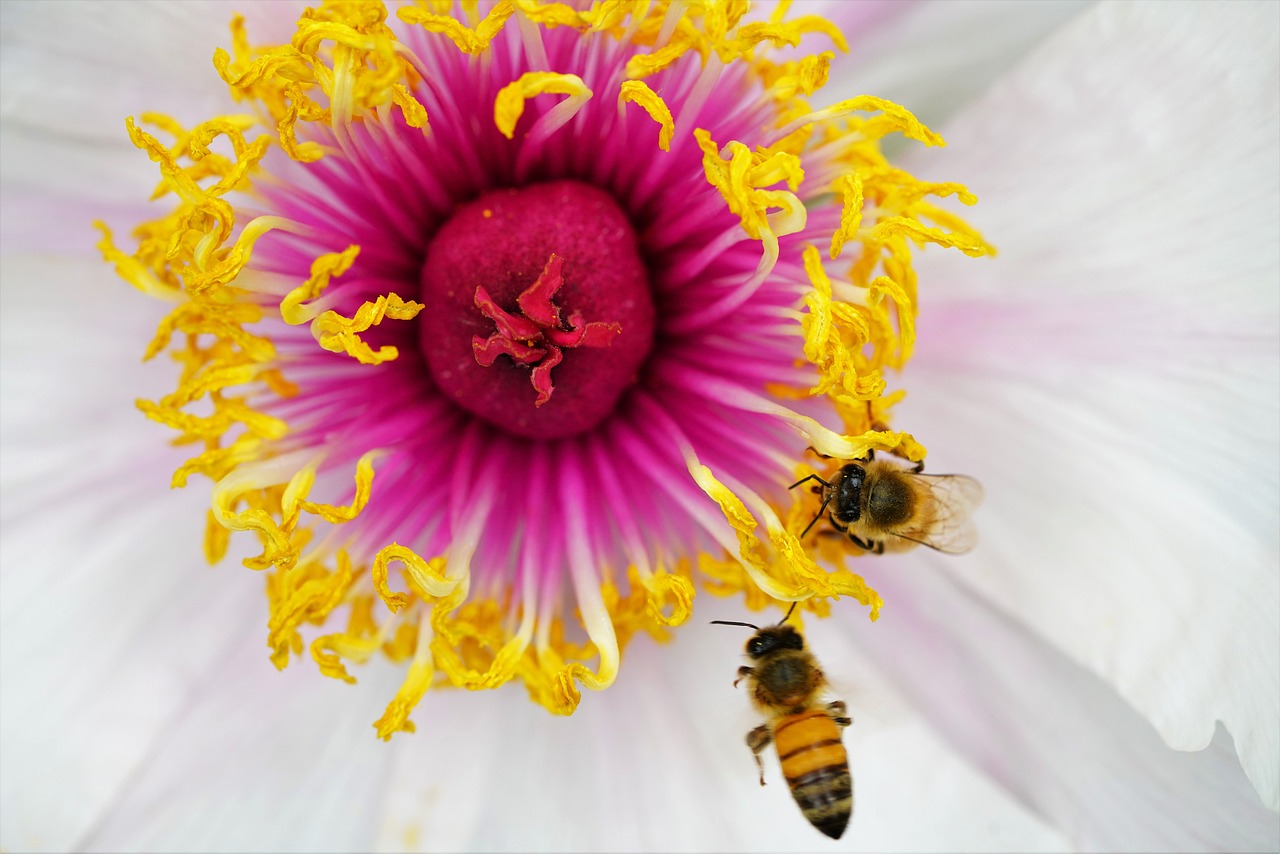Bees Eat More Than Just Nectar
Pollination by bees is essential for agriculture, especially for crops pollinated by insects. Honey collected by bees is also an important agricultural product. However, bees do not stay healthy by eating honey alone; they consume pollen to improve their diet and maintain their health.
This study examines how different types of pollen affect the energy and health of bees. Surprisingly, specific pollen types significantly influence bee energy metabolism and fat body development. Pollen is a major nutrient source for bees, and its impact exceeded expectations.
The Power of Nutrient-Rich Pollen.
In the experiment, bees that ingested various types of pollen had their body fluids collected and their composition and body fat measured. The results were clear. Buckwheat and phacelia pollen dramatically increased the bees’ energy reserves. Bees fed with these pollens had significantly higher levels of sugars, proteins, and glycogen, resulting in larger and healthier fat bodies. Additionally, rapeseed and goldenrod pollen were confirmed to be very effective energy sources.

One Type is Not Enough!
The study also examined the effects of consuming only specific types of pollen. The results were surprising. A diet rich in various pollens was found to be most effective for bee health. Single-type pollen could not provide the necessary nutrients adequately. For example, hazelnut and pine pollen collected in spring increased glucose levels but did not increase body fat. Since sugar provides instant energy, it cannot sustain stamina. On the other hand, summer and autumn pollen are rich in proteins and glycogen, enabling bees to use not only sugar but also fat as an energy source, leading to higher activity levels. Pollen diversity supports overall bee health.
Protecting the Future of Bees
This study emphasizes the importance of creating an environment where bees can ingest diverse pollens to maintain their health. In the late 20th century, supplements based on soybean protein, egg yolk powder, and fish meal were added to bee diets, but they could not completely replace pollen. This highlights the need for nutritional supplementation for bees through pollen, which in turn is necessary for beekeeping and agriculture. The goal is to create an environment where the optimal pollen mix for bees can be identified and provided, strengthening their colonies. Specifically, planting appropriate plants around hives is one approach that can be started immediately. In the future, bee colonies will become stronger and more sustainable, greatly impacting our food production.




コメント